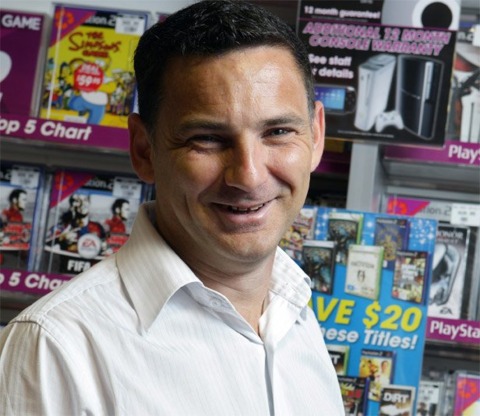Survey: Aussie parents unaware of console locks
Newspoll study finds 22 percent of parents believe parental locks can be overridden by their children; majority doesn't even know locks exist.
In Australia, those vociferous against the introduction of an adult rating for video games usually cite the scenario of children somehow getting access to inappropriate content as the reason for their opposition. Conversely, those supporting an R18+ rating argue that all current-generation consoles feature strong parental locks, meaning parents need simply select the appropriate age setting to make sure their kids aren't playing the wrong games. However, those against an adult rating for video games will likely see a recent Newspoll survey as further validation of their views, with the poll finding many Australian parents are unaware of the existence of parental controls.
A Newspoll study commissioned by the Interactive Games and Entertainment Association (iGEA) found 74 percent of parents surveyed knew nothing of parental locks or their function. The Newspoll research was conducted nationally over a period of three days in November 2009, involving 535 adults with dependent children aged up to 17. The survey found that 34 percent of parents said they weren’t concerned about the type of games played by their children, while 22 percent said they believed their child could override parental locks.
According to iGEA CEO Ron Curry, the study was commissioned to better understand awareness of the parental lock tools amongst parents. “[Video games] are played by young children, teens, mums and dads, and we want to equip parents will the tools to ensure their children enjoy the best gaming experience,” Curry said.
“All of the popular games platforms have built-in controls to help parents ensure that the children are playing games that are suitable for their age. The majority of platforms also have specific tools to help parents manage the amount of time their children spend playing games. We are urging parents to be aware of the settings that can help families ensure healthy gaming habits.”
Despite 74 percent of parents saying they knew nothing of parental locks, 69 percent admitted to playing video games regularly with their children. When questioned how parental locks would affect their playing habits, 85 percent of parents said parental lock functions on consoles would provide them with a safeguard to prevent their children from playing games with inappropriate content.
The findings of the study support claims made by infamous antigame proponent South Australian Attorney-General Michael Atkinson. In a speech to State Parliament in March 2008, Atkinson said: “Proponents for the [R18+] classification say the latest technology allows gaming platforms and computers to be programmed to allow parental locks. Today’s children are far more technologically savvy than their parents. It’s laughable to suggest that they couldn’t find ways around parental locks if R18+ games were in the home.”
Similarly, in a statement to GameSpot AU in January this year, Atkinson said: “Once electronic games are in the home, access to them cannot be policed and the games are easily accessible to children. These days, older children (18-30) are often living in the family home with younger children (under 18). This means games belonging to older children or parents can easily make their way into the hands of those under 18.”
However, Curry believes that just because parents are not aware of parental locks, this does not mean they are not managing access to content within the home.
“The survey revealed that 92 percent of parents said they were aware of the games played in their home,” Curry said. “Parents have been managing restricted content in their homes for 20 years with videos and DVDs. For even longer, they’ve had to manage alcohol and cigarettes. Simply because a parent is unaware of the parental controls offered in a game console does not mean they are not responsibly managing access to content.”
Got a news tip or want to contact us directly? Email news@gamespot.com

Join the conversation